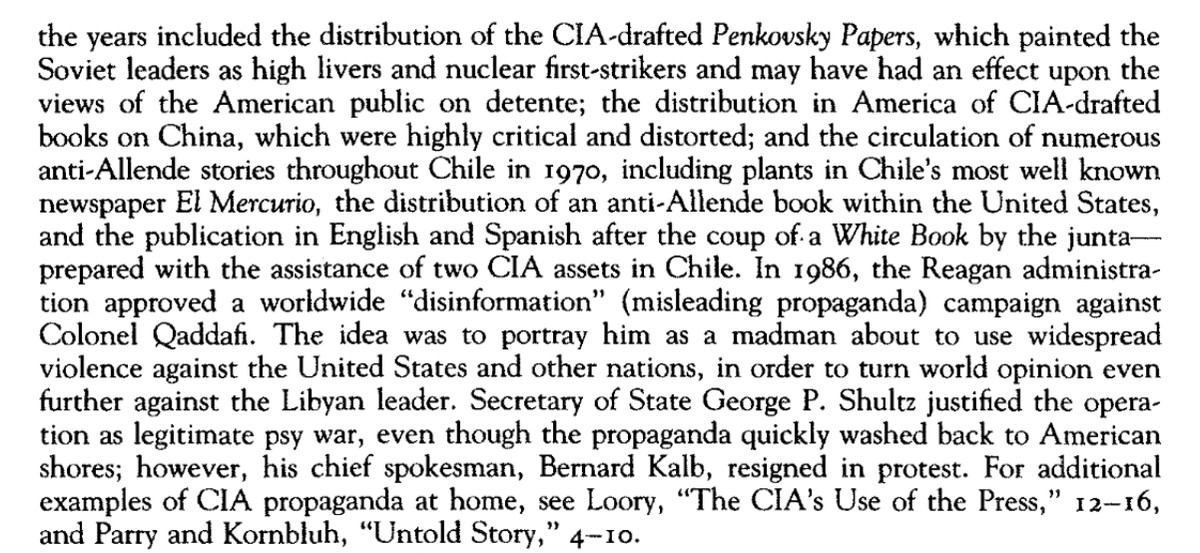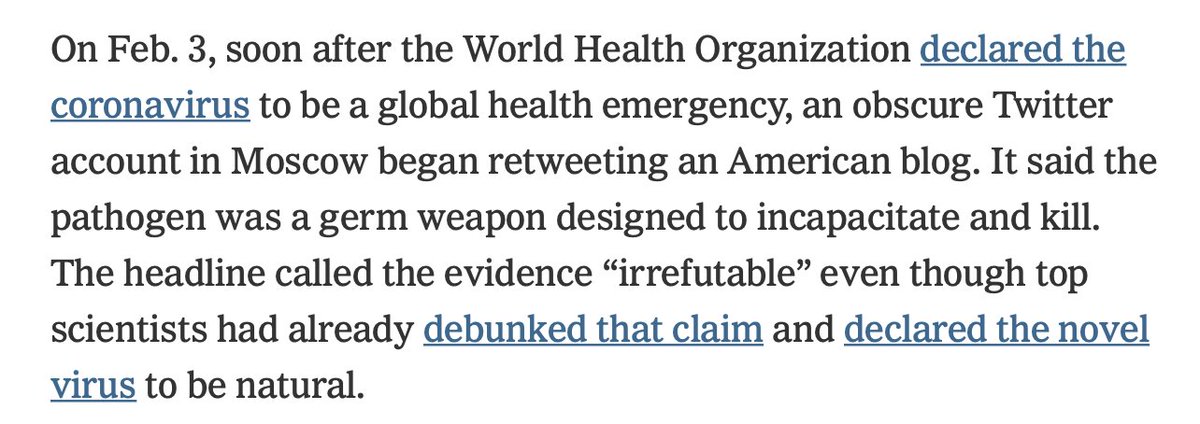People have asked to explain what I find problematic about this article. I won& #39;t attempt an exhaustive review here since the piece is just too long for this and there are questionable claims in practically every paragraph. But I will highlight a few interesting points. https://twitter.com/DrRadchenko/status/1250488801673216000">https://twitter.com/DrRadchen...
A good part of the article is a discussion of the KGB& #39;s disinformation programmes, which are then linked (via the notable banality of Putin& #39;s work for KGB ini his youth) to Russia& #39;s current disinformation campaigns.
The fact that the KGB conducted disinformation is well known, and the best source for this is Christopher Andrew& #39;s work on the KGB, on the basis of the Mitrokhin Archive. This, for instance, is a classic: https://www.amazon.co.uk/World-Was-Going-Our-Way/dp/0465003117/.">https://www.amazon.co.uk/World-Was...
But this is not to say that the KGB was the only national intelligence service that engaged in disinformation or psychological operations against one& #39;s adversaries. This was fairly common throughout the Cold War, on both sides of the Iron Curtain.
I& #39;ll just give one random example that I came across a few days ago when working on a history of the boycott of the 1980 Moscow Olympics. During the Games, the KGB confiscated fake issues of Pravda from visitors arriving in the USSR. Pravda was the leading Soviet newspaper.
I found it interesting because this was a very literal example of "fake news." I& #39;ve come across multiple instances of disinformation being employed by various intelligence agencies, even - no surprise here - the CIA. Here& #39;s an excerpt from a 1989 history of the CIA (OUP).
This is just an example - not exhaustive by any means. Why does this matter? Because by implying that disinformation is a KGB invention used by the evil Russians against American democracy obscures the complex reality of disinformation being employed by friend and foe alike.
Enough history. I& #39;ll just add one point. The part linking Putin to KGB& #39;s efforts to obscure the Soviet biological programme is simply bizarre. Here& #39;s the excerpt. The article would be better off linking Gorbachev to this effort, as shown convincingly in David Hoffman& #39;s Dead Hand.
Another problem with the article is that it makes much more of obscure Twitter accounts than one probably should. Thus, it begins with the following thunderous claim.
OK, so what. We know that the Russians have engaged trolls. But in the case of covid-19, a much more prominent example of people tweeting out conspiracy theories was actually not an obscure Russian account but a very public twitter account of @zlj517, China& #39;s MFA spokesman.
Who is by the way not mentioned in the article at all. Nor, indeed, does @realDonaldTrump get a mention, although the amount of disinformation that has come through his Twitter account would put any Russian troll to shame.
The problem with this general line of argument is that neglects to mention that the failures attributed to trolls and bots are much more convincingly attributable to failures of public policy.
It is easier to blame one& #39;s failures on "secretive" Prigozhin (who is btw not secretive at all - he is a celebrity in Russia) than on the shortcomings in public health and education.
There are many more problems with this article (from Gerasimov "doctrine" that most Russia experts will tell you is a joke) to these kind of random claims.
Look, we know Russia peddles disinformation. In an example of what first-rate journalism can accomplish, check out this the excellent investigation by @Alexey__Kovalev and Farida Rustamova about the fake Boris Johnson ventilator story. https://twitter.com/meduza_en/status/1250404915295457281">https://twitter.com/meduza_en...

 Read on Twitter
Read on Twitter






